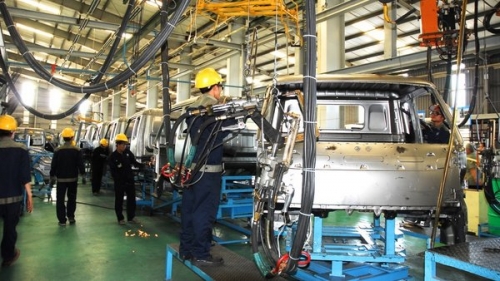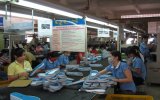Utilising benefits from new generation FTAs

Vietnam has signed eight FTAs, creating considerable impacts on the national economy
The first few years of the 21st century have witnessed the negotiations and establishment of a 'new generation' of Free Trade Agreements (FTAs). Vietnam is among the countries actively participating in these FTAs, with the most important agreements being the Trans-Pacific Partnership Agreement (TPP) and the Vietnam-European Union FTA. The implementation of these FTAs is expected to boost the national economy, but Vietnam must be ready to cope with their potential challenges.
The 'hindrance' in enforcement of agreements
The US and EU are the world’s two leading partners in negotiating and implementing the new generation of FTAs. However, implementing these agreements is a big challenge for countries as they must effectively connect policies on commercial interests with other fields of concern, such as the environment and labour. They also have to deal with the problem of how to create an effective mechanism to ensure the mass participation of the community in FTAs, to fully take advantage of these agreements.
From 1996 to 2014, Vietnam signed and implemented eight FTAs which have made considerable impacts on Vietnam's economy, contributing to making the Vietnam's business environment clear, predictable and more integrated. But the exploitation of the benefits from FTAs signed by Vietnam reveals many restrictions.
Six out of eights FTAs being implemented in Vietnam come from the ASEAN bloc, which has created fierce competition and an increased trade deficit.
According to the Vietnam Chamber of Commerce and Industry (VCCI), only 30% of Vietnamese enterprises take advantage of preferential tariffs from FTAs signed by Vietnam. The low figure may due to a lack of awareness of tax incentives from such agreements, or because enterprises can hardly meet the regulations on Certificate of Origin (C/O) in addition to complicated procedures for the issuance of preferential C/O.
Vietnam also lacks the instruments to protect the domestic market amidst unhealthy competition from imported goods.
The system of legal documents to carry out FTAs in Vietnam is meagre without specific guiding documents for enterprises. Despite the establishment of the National Steering Committee for International Economic Integration by the Government, the consultancy and assistance to enterprises in utilising FTAs benefits are very modest. In particular, the co-ordination between ministries, sectors and localities in implementing FTAs is loose..
Being more active in a 'new generation' playground
In 2015, Vietnam will implement commitments and obligations under the framework of the World Trade Organisation (WTO), existing FTAs and seven other FTAs being negotiated in a more practical manner. Vietnam will also have to follow the scope of the upcoming ASEAN Community, which requires the country to proactively utilise opportunities from FTAs, as well as improve its competitiveness to meet criterion of new generation FTAs.
To realise benefits from FTAs, it is necessary to build up a comprehensive and synchronous commercial policy that can connect the fields of trade, investment, market, environment, labour and others.
The Government should set up a mechanism to control the link between the Ministry of Industry and Trade, localities and other related agencies in implementing commitments, and assist enterprises in taking advantage of benefits from FTAs.
It is also advisable to issue guiding documents on the implementation of FTAs after they are signed and take effect, in addition to giving more training courses to experts in the fields.
The Vietnamese business community should actively equip themselves with knowledge and information on FTAs to take advantage of these agreements as they are the direct beneficiaries of FTAs.
NDO
 Processing and manufacturing industry makes high efforts, gains good growth
Processing and manufacturing industry makes high efforts, gains good growth
 Enterprises assisted to enhance product quality and elevate competitiveness
Enterprises assisted to enhance product quality and elevate competitiveness
 Processing and manufacturing industry accounts for over 91% of foreign investment capital
Processing and manufacturing industry accounts for over 91% of foreign investment capital
 Strengthening removal of obstacles to promote socio-economic development
Strengthening removal of obstacles to promote socio-economic development
 Proactively facilitating enterprises’ development
Proactively facilitating enterprises’ development
 Binh Duong completes infrastructure to support its efforts in investment attraction
Binh Duong completes infrastructure to support its efforts in investment attraction
 Commodities well prepared for upcoming Tet 2025
Commodities well prepared for upcoming Tet 2025
 Vietnam sees opportunities to attract investments in electronics support industries
Vietnam sees opportunities to attract investments in electronics support industries
 Six-house cooperation supports farmers to increase the value of agricultural products
Six-house cooperation supports farmers to increase the value of agricultural products
 Ips achieve key targets ahead of schedule
Ips achieve key targets ahead of schedule







